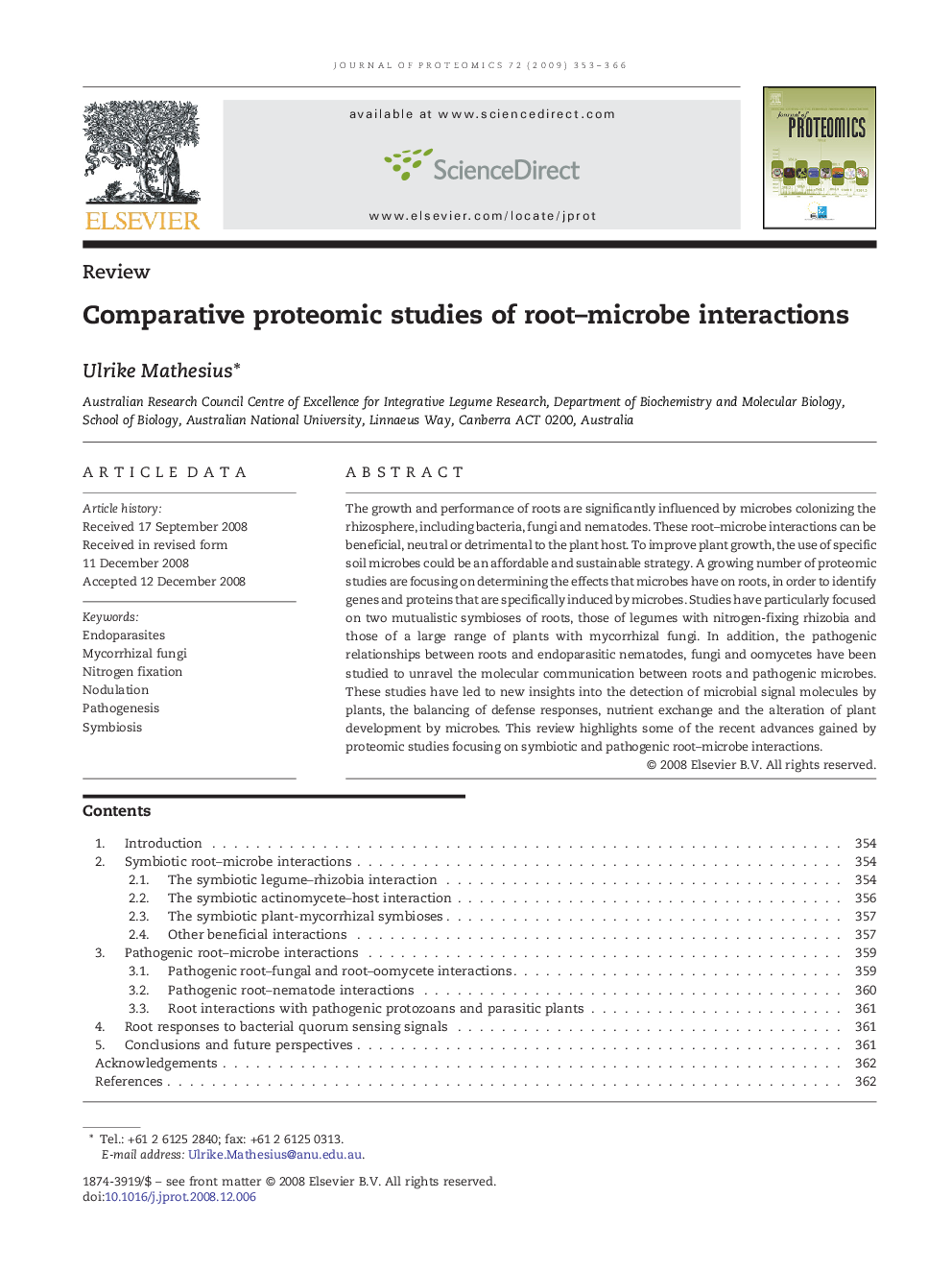| Article ID | Journal | Published Year | Pages | File Type |
|---|---|---|---|---|
| 1226918 | Journal of Proteomics | 2009 | 14 Pages |
The growth and performance of roots are significantly influenced by microbes colonizing the rhizosphere, including bacteria, fungi and nematodes. These root–microbe interactions can be beneficial, neutral or detrimental to the plant host. To improve plant growth, the use of specific soil microbes could be an affordable and sustainable strategy. A growing number of proteomic studies are focusing on determining the effects that microbes have on roots, in order to identify genes and proteins that are specifically induced by microbes. Studies have particularly focused on two mutualistic symbioses of roots, those of legumes with nitrogen-fixing rhizobia and those of a large range of plants with mycorrhizal fungi. In addition, the pathogenic relationships between roots and endoparasitic nematodes, fungi and oomycetes have been studied to unravel the molecular communication between roots and pathogenic microbes. These studies have led to new insights into the detection of microbial signal molecules by plants, the balancing of defense responses, nutrient exchange and the alteration of plant development by microbes. This review highlights some of the recent advances gained by proteomic studies focusing on symbiotic and pathogenic root–microbe interactions.
